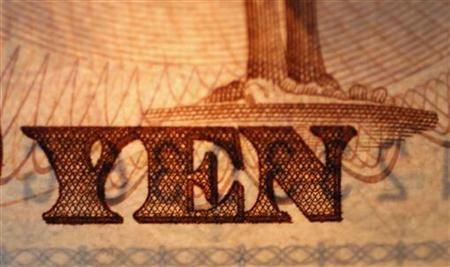Yen Weakens As Bank Of Japan Raises Inflation Target

The Japanese yen fell Tuesday against the dollar after the Bank of Japan (BoJ) raised the inflation target to 2 percent from 1 percent and introduced the open ended asset purchasing method as part of its aggressive monetary stimulus measures intended to revive the economic growth momentum.
The dollar touched 90.18 yen Tuesday as the central bank confirmed that it would pursue the monetary easing policy measures aimed at achieving the price stability target at the earliest possible time. “The bank will pursue aggressive monetary easing, aiming to achieve the above-mentioned price stability target, through virtually zero interest rate policy and purchases of financial assets, as long as the bank judges it appropriate to continue with each policy measure respectively,” the BoJ said in a statement. The relative prospects for monetary policy have been the key drivers of the yen-dollar exchange rate in recent months.
Beginning January 2014, the central bank will commence buying 13 trillion yen ($145 billion) in assets every month, which will include 2 trillion yen in Japanese government bonds. “With respect to the Asset Purchase Program, after completing the current purchasing method, from January 2014, the bank will introduce a method of purchasing a certain amount of financial assets every month without setting any termination date,” the central bank added.
The central bank has raised the concern that Japan’s economy remains relatively weak. The data released in November by the Cabinet Office showed that the country’s GDP, which measures the annualized change in the inflation-adjusted value of all goods and services produced by the economy, shrank to 0.9 percent in the quarter ending Sept. 30, from a 0.1 percent rise in the previous three months.
The BoJ has noted that the industrial production has also come down, indicating that the world’s third largest-economy continues to weaken. According to the data released last week by the Ministry of Economy, Trade and Industry, Japan’s industrial production, which measures the total inflation-adjusted value of output from manufacturers, mines and utilities, fell 1.7 percent in November compared to a 1.6 percent rise in October.
Last month, the BoJ decided to raise the ceiling on its asset purchase program by 10 trillion yen ($120 billion) to 101 trillion yen. The central bank came under political pressure to announce the stimulus measures after the Liberal Democratic Party won a landslide victory in the general elections in December.
Japan's monetary base rose in December compared to that in the same month last year, indicating that the monetary easing policies are leading to an increase in the amount of currency in circulation which in turn results in reviving economic growth. An increase in the supply of money is expected to lead to additional spending, which in turn results in inflation.
© Copyright IBTimes 2024. All rights reserved.





















